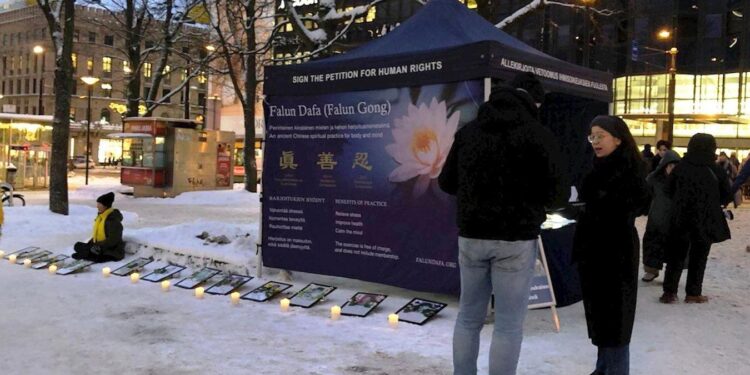The U.S. Department of State has released its 2024 Country Reports on Human Rights Practices, with the latest edition providing an in-depth analysis of Finland’s human rights landscape over the past year. The report examines a range of issues including civil liberties, political rights, and judicial independence, offering critical insights into the Nordic nation’s adherence to international human rights standards. As Finland continues to navigate complex social and geopolitical challenges, the findings highlight both progress made and areas requiring attention, reflecting the country’s ongoing commitment to democratic principles and human dignity.
Human Rights Overview in Finland Highlights Strengths and Challenges
Finland remains a global leader in safeguarding human rights, underpinned by a strong legal framework and an independent judiciary that actively enforces civil liberties. The country excels in promoting freedom of expression, gender equality, and access to education and healthcare for all citizens. Authorities have maintained transparent democratic processes, with robust protections against discrimination based on ethnicity, religion, or sexual orientation. Notably, Finland’s commitment to press freedom and a free internet is consistently highlighted by international watchdogs, signaling an environment where diverse views thrive without undue censorship.
Despite these strengths, challenges persist that demand ongoing attention. Concerns have been raised regarding the treatment of asylum seekers and refugees, including lengthy processing times and occasional reports of inadequate detention conditions. Additionally, some minority groups highlight systemic barriers to full societal inclusion, particularly in the realms of employment and housing. Law enforcement agencies face scrutiny over the proportionality of their use of force and allegations of racial profiling. The government continues to address these issues through updated policies and increased training aimed at reinforcing human rights standards across all sectors.
| Aspect | Status | Notable Points |
|---|---|---|
| Freedom of Expression | Strong | Robust legal protections & free media |
| Asylum Procedures | Needs Improvement | Backlogs & detention condition concerns |
| Minority Inclusion | Ongoing Challenge | Employment/housing barriers reported |
| Law Enforcement | Mixed | Allegations of profiling under review |
In-depth Analysis of Civil Liberties and Freedom of Expression
Finland upholds a robust framework protecting civil liberties, particularly emphasizing freedom of expression as a cornerstone of its democratic society. The government’s commitment is reflected in legislative measures that safeguard media independence and protect individuals from censorship or undue political interference. Despite these strong protections, challenges have emerged related to the spread of misinformation through social media platforms and the balancing act between combating hate speech while preserving open discourse. Authorities and civil society continue to engage in dialogues aimed at enhancing digital literacy and enforcing transparency without encroaching upon free speech rights.
Key observations include:
- Legal provisions explicitly guarantee freedom of speech and prohibit arbitrary restrictions.
- The media operates largely free from government control, with pluralistic viewpoints widely represented.
- Instances of online harassment and hate speech remain concerns, prompting targeted initiatives.
- Discussions focus on aligning counter-disinformation efforts with civil liberties.
| Aspect | Status | Remarks |
|---|---|---|
| Press Freedom | High | Strong protections, diverse media landscape |
| Hate Speech Regulation | Active Enforcement | Balanced with freedom of expression |
| Digital Misinformation | Emerging Challenge | Ongoing public education campaigns |
Policy Recommendations to Enhance Minority Rights and Anti-Discrimination Measures
To strengthen protections for minority communities, policymakers must prioritize the enactment of comprehensive anti-discrimination legislation that explicitly addresses both direct and indirect biases. This includes empowering oversight bodies to effectively monitor compliance across public and private sectors, paired with increasing funding for outreach programs aimed at raising awareness of minority rights. Key recommendations include:
- Introducing mandatory anti-bias training for government officials and law enforcement personnel
- Establishing independent complaint mechanisms accessible in multiple languages
- Expanding legal aid services specifically designed for victims of discrimination
Data-driven approaches should also be embedded into policy frameworks to ensure measurable progress. The government could implement a national diversity index and publish annual reports on discrimination cases to boost transparency and accountability. Below is a summary of strategic actions suggested to improve minority inclusion and combat systemic discrimination:
| Strategic Action | Expected Impact |
|---|---|
| Multilingual complaint platforms | Increased accessibility for minority victims |
| Anti-discrimination public awareness campaigns | Reduction in societal prejudices and stigma |
| Regular cultural competency assessments | Improved inclusivity in public service delivery |
Future Outlook
In summary, the 2024 Country Report on Human Rights Practices for Finland underscores a continued commitment to fundamental freedoms and democratic principles, while also highlighting areas requiring vigilance and improvement. As Finland navigates emerging challenges, the U.S. Department of State’s assessment provides a critical lens through which policymakers, advocates, and the international community can engage with the country’s human rights landscape. Ongoing collaboration and transparency will remain essential to ensuring that Finland upholds the standards expected of a modern democratic state.
















